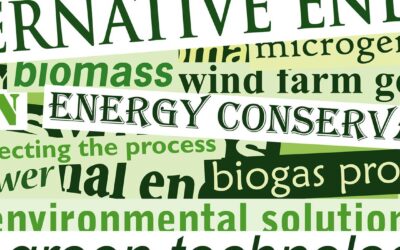Nothing wakes voters from a slumber like the possibility of $4 for a gallon of gas. Last week, the alarm clock went off and 1.18 million signatures were submitted to county registrar offices across the state of California to place the issue of an energy supply shift on the ballot this November.
The California Clean Alternative Energy Initiative seeks approval on a $4 billion effort to fund alternative energy projects in the form of biofuels, reduce dependency on oil, clean up the air, and lower energy costs.
Sounds ambitious. Just how might this be done? Eureka! By leveraging the public outrage, deserved or not, over fuel prices and record profits to create a new tax on oil companies. California is the 3rd-largest oil producing state, and the only large oil-producing state in which oil companies don’t pay a tax for the use of natural resources.
This green tax shift would then fund “research, facility, and training grants to California’s universities; vocational training grants to community colleges; and buydowns, loans, loan guarantees, and credits to accelerate the development and deployment of renewable energy technologies, energy efficiency technologies, clean alternative fuels, and clean alternative fuel vehicles.”
Phew! Read all 34 pages (pdf) if you want the gory details.
Now, this taxing stuff always seems to be a bit of a tricky business. The question is whether the extra tax on oil companies will be passed on to the customer. Apparently not, says U.C. Berkeley Professor of Energy Dan Kammen:
The price of crude oil is set on the global market, so if California oil producers tried to pass the assessment on to consumers in the form of higher oil prices, refineries would simply buy from other sources.
This may well be the case, but one could also argue that, all things being equal, a higher tax might lower the in-state supply and thus increase the local cost at the pump. Californians get roughly 40% of their oil from in-state reserves. This initiative could have the effect of increasing foreign dependence, not a particularly attractive prospect to most.
There are other problems with the bill. Biofuels like ethanol are exciting but far from a panacea for our global warming and petroleum supply issues. This bill would establish massive funding for biofuels without a rigid quantification of their carbon-reducing benefits.
As any Californian will tell you, the ballot initiative process is highly controversial. From property taxes (Prop 13) to immigration rights (Prop 187) to the Governator, ballot initiatives often turn complex issues that play a major role in shaping the daily lives of Californians into dueling television campaigns. The effect can be substantial, which is why this proposition deserves some scrutiny. It does, however, have the attraction of ramping up funding for renewable fuels and giving everyday citizens a chance to voice their opinion on energy issues. Stay tuned as we track the debate closer to election day.
Brought to you by terrapass.com
Featured image







